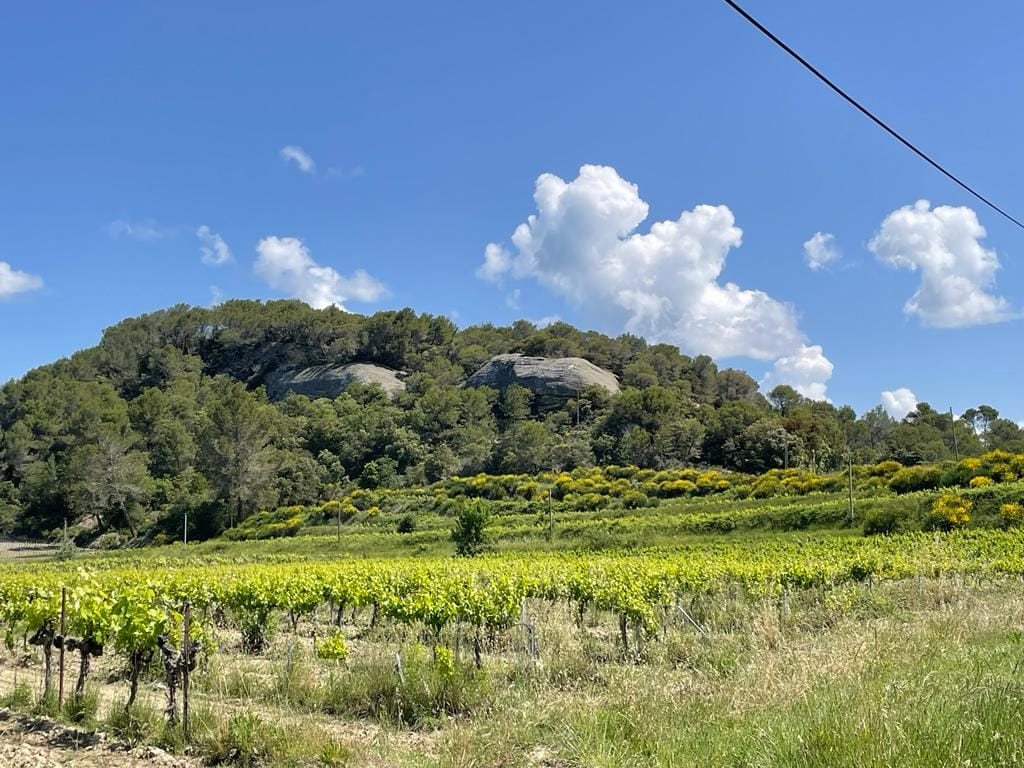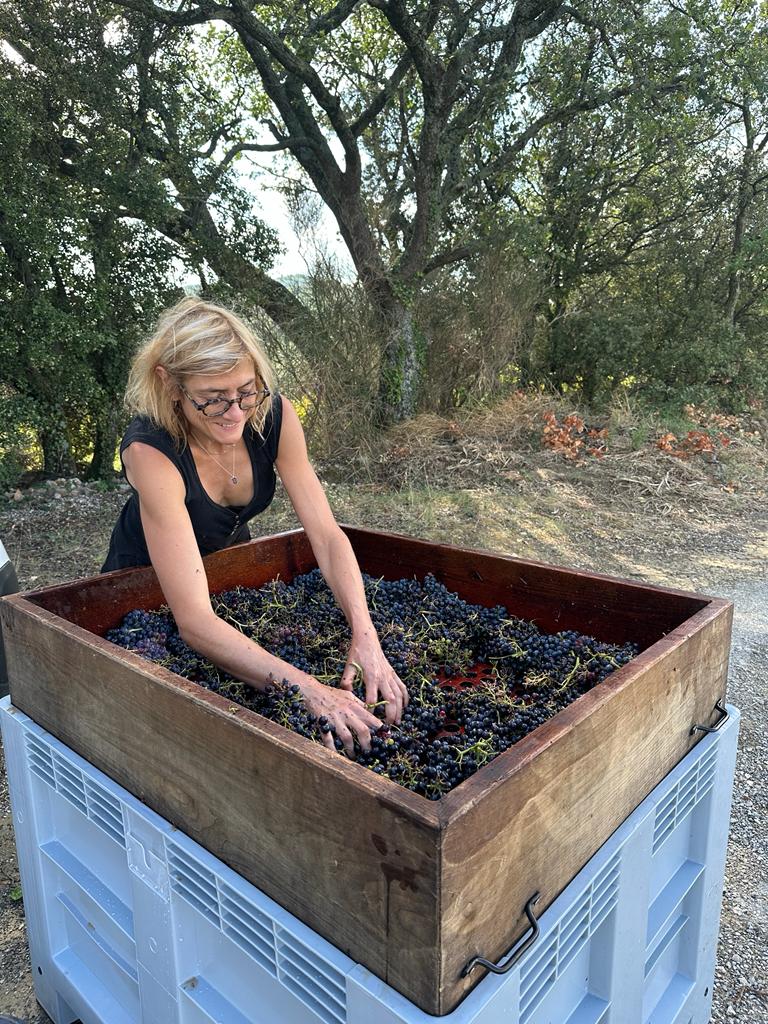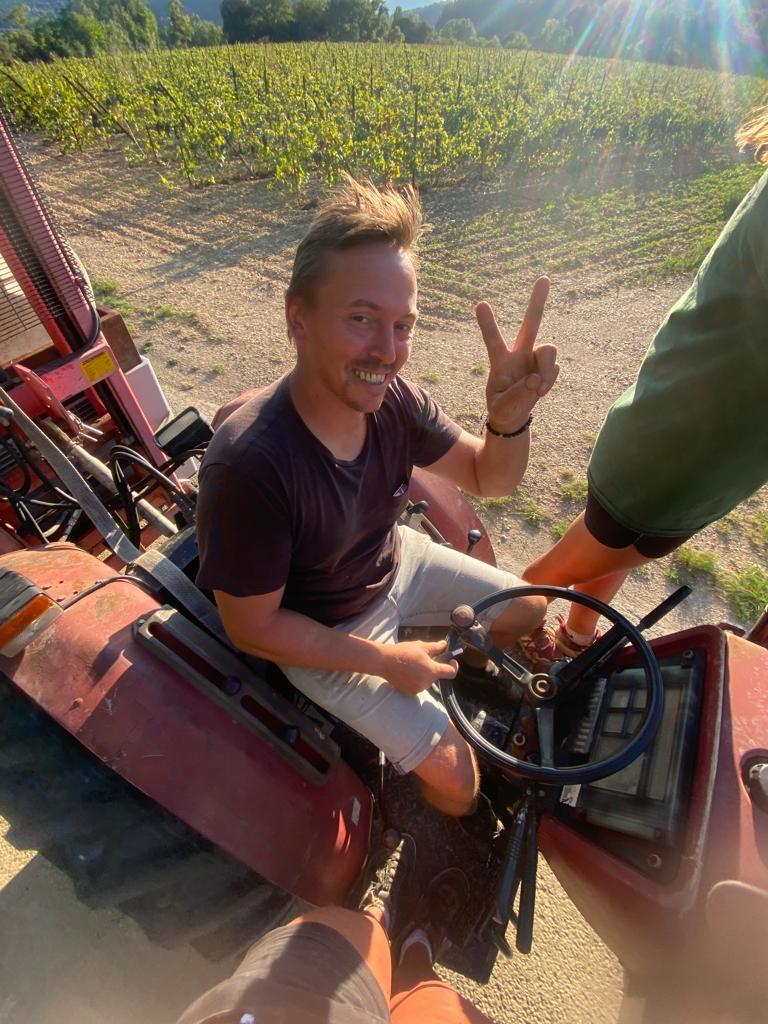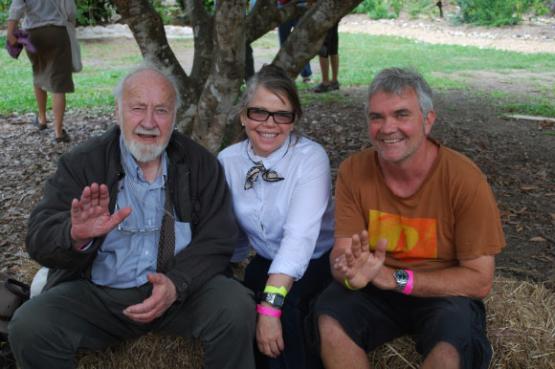
Meet the winemaker: Domaine Houillon
4 min read
Domaine Houillon is an estate in the Côtes du Rhône run by Aurélien and Charlotte Houillon. They make wine using the late Jules Chauvet's winemaking approach - Chauvet, a wine négociant who worked at La Chapelle-de-Guinchay in the Beaujolais, has been coined the 'Godfather of natural wine'.
We had the chance to speak with Aurélien and Charlotte about their work, with Charlotte translating for her partner. We hope you enjoy reading the conversation.

Can you tell me about your backgrounds - how did you come to make wine together?
Aurélien has been in vineyards since he was around 5 years old, because he and his family are very close to Pierre Overnoy. He started out working with Pierre and his brother Emmanuel in the Jura, and they exchanged a lot of ideas on nature and spirituality. He has always been in wine, especially natural wine - it only felt right to follow Pierre's approach. Aurélien likes to say that he doesn't know any different.
After that, he spent some time in Switzerland at another winery. I'm from Switzerland and had been a historian studying old manuscripts, but left this career to work as an animal traction service provider. That's how I met Aurélien - I came to work on the vines on the estate where he worked. Then we decided to set up a winery together. We found the domaine here in Côtes du Rhône in 2017 and fell in love with it. It's quite small and the vines are all around the house, so just the two of us can work it by ourselves.

What's your approach to growing and making wine, and what has influenced this approach?
Of course, the most important thing is to respect nature, water and the consumer, and to work without any input. Because we were working in this way, it felt natural for us to work with horses in the field and make our own wine labels out of vines. To do this, we take the outer layer of the vine shoots and cook it with baking soda or ash, then bleach or dye it using pigments and turn it into paper using a traditional, old European frame.
It comes from the idea that we use everything in our domaine - there's no waste, so it's a circular system. The outside of the bottle reflects the inside. What's most important is to us is that we respect and reflect the environment, but we also prefer this kind of wine. When we converted the domaine to organics - and then some - we saw such change. First, the insects started coming back, then the birds, then all the different plants. We've been able to really witness the impact of this work.
Can you tell me about where you are in the Côtes du Rhône, and the grapes, climate and traditions that define the region?
We are in what we call the north of the south region. We are north from Châteauneuf-du-Pape and have typical grapes of this region - Grenache, Syrah and Cinsault, but we are also now looking for ancient varieties, like Bourboulenc and Picardan. We want to start making white wines and struggle with drought, and these varieties aren't so demanding of water. It's also what our customers want. For this wine, Indigo, we use Syrah - a variety more common in the north.
Is there much of a natural wine scene?
Not really - not in the true sense. We don't put anything into our wine and there's not many people here working like us. There's an expression in French that translates to 'natural and a half', which is what we say we are. Aurélien is used to Jura, where there are a lot more natural winemakers, so it's different here and can be a challenge. But there are some newcomers and it's developing, which is good.
Can you describe the vineyard and its surroundings?
We have nine hectares of total land, including woods, horses, ponies and donkeys, with five hectares of vines. We also have a small river and some hills, so it's not as flat as other areas in the Côtes du Rhône. It's a very old vineyard. The majority of our vines are 50 years old, and we have two vineyards which are 70 years old. This is also why we produce quite a low volume, and another reason we're looking to plant some whites.
Can you describe the soil?
We have clay soil, which is very sticky. It's also quite useful because we have a rainy period during fall and winter, so get a lot of water at this time, but after that it's completely dry for many months and the soil becomes very hard. In some places, we have a little bit of compacted sand, which melts when it rains and mixes with the clay.
Visit Domaine Houillon's RAW WINE profile to learn more.


